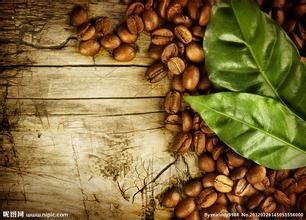Crisp and refreshing taste of Kenyan coffee manor flavor characteristics of high-quality coffee beans
Aromatic, full-bodied, with fruit flavor, taste rich and perfect. Kenyan coffee has a wonderful fruit flavor, tastes like BlackBerry and grapefruit, and is a favorite of many coffee gluttons. This coffee has an excellent medium purity, crisp and refreshing taste. It has a fresh flavor and is most suitable for drinking iced coffee in summer. When tasting this coffee, if it is paired with sour fruits such as grapefruit, it will certainly give me the best coffee experience. "not much like coffee, but rather like fruit tea" is the common feeling of many people about this kind of shallow roasted Kenyan coffee. There are two types of coffee farms in Kenya. One is a large planting farm covering an area of more than five acres, but the average elevation is low. As far as Kenyan coffee is concerned, the coffee beans of the big farm are of medium quality. The best Kenyan beans come from small farms, most of which are located in the foothills or volcanic slopes above 5,000 to 6,000 feet. Each small farmer has a capacity of only 20 to 70 bags per season and cannot afford to invest in expensive washing plants, but small farmers are very United. Hundreds or thousands of households are gathered to set up a cooperative farm, which is funded by the government to build a washing treatment plant, and the coffee fruits picked by small farmers are sent to the cooperative farm for unified processing. First remove the half-ripe or rotten fruit, then peel, ferment, decompose the flesh, remove the coffee beans, then dry and polish, the whole process is supervised by the official Coffee Administration, which ensures the quality of Kenyan coffee. The washing and processing technology and high quality control of Kenyan beans have always been the example of bean-producing countries who only know how to brew, but do not know how to taste coffee, so the original delicacy may become tasteless. Some people taste coffee with the taste of the tongue, while others enjoy the aromatic mellow in the mouth. in addition, it depends on the condition of the body and the atmosphere around the coffee. In a word, tasting coffee is a very delicate thing.
When you drink coffee in a coffee shop, you sometimes drink almost half-cold coffee. No matter how good the coffee beans are and how good the brewing skills are, you will lose your appetite for coffee. Drinking while it is hot is a necessary condition for tasting delicious coffee, even on a hot summer day. When the coffee is cold, the flavor will decrease, so when brewing the coffee, in order not to reduce the taste of the coffee, soak the coffee cup in boiling water in advance. The appropriate temperature for coffee is 83 degrees Celsius at the moment of brewing, 80 degrees Celsius when it is poured into the cup, and 61-62 degrees Celsius in the mouth. it is the most ideal Kenyan coffee-flavor Kenyan coffee.
Aromatic, full-bodied, with fruit flavor, taste rich and perfect. Kenyan coffee has a wonderful fruit flavor, tastes like BlackBerry and grapefruit, and is a favorite of many coffee gluttons. This coffee has an excellent medium purity, crisp and refreshing taste. It has a fresh flavor and is most suitable for drinking iced coffee in summer. When tasting this coffee, if it is paired with sour fruits such as grapefruit, it will certainly give me the best coffee experience. "not much like coffee, but a bit like fruit tea" is the common feeling of many people about this kind of shallow roasted Kenyan coffee.
In addition to having obvious and charming fruit acidity, Kenyan coffee is mostly from small coffee farmers, planted in a variety of different environments, encounter different climate and rainfall every year, and bring a variety of distinct and unique personalities. Take the AAPlus grade "KenyaAA+Samburu" as an example, the Samburu in 2001 has a strong aroma of black plum, the acidity is not high, and the taste is strong. The newly harvested Samburu in the winter of 2002 presents a completely different flavor, mulberry and green plum, with a little Nanyang spice (Spicy) flavor, after drinking, the aftertaste has the sweetness of green tea, the acidity is slightly higher than the year before, the taste is still strong. The common Kenyan taste is not strong, but it has a bright fruit-like flavor, some spicy and some red wine.

Important Notice :
前街咖啡 FrontStreet Coffee has moved to new addredd:
FrontStreet Coffee Address: 315,Donghua East Road,GuangZhou
Tel:020 38364473
- Prev

Introduction to the flavor and taste of boutique coffee beans in the slightly bitter aftertaste of Nicaraguan coffee manor
Nicaraguan coffee of high quality is in the forefront of coffee beans in the world and enjoys a good reputation. Its particles are moderate in size, mild in taste and very aromatic and mellow. Nicaragua is located in central Central America, bordered by the Pacific Ocean to the west and the Caribbean Sea to the east. The highlands in the north and the coastal plains in the east are part of the Central American volcanic belt. The eastern plain is high-temperature and rainy, with a tropical maritime climate. Suitable
- Next

Round, plump, bean-shaped and beautiful Rwandan coffee estate. Flavor and taste characteristics.
Rwanda is a landlocked country located south of the equator in central and eastern Africa. Tanzania borders Tanzania in the east, Burundi in the south, Zaire in the west and northwest, Uganda in the north, covering an area of 26338 square kilometers, ranking 149th among countries in the world and close to Burundi, Macedonia, Haiti and Albania. Rwanda is located in central and eastern Africa, bordering the Democratic Republic of Congo in the west,
Related
- Detailed explanation of Jadeite planting Land in Panamanian Jadeite Manor introduction to the grading system of Jadeite competitive bidding, Red bid, Green bid and Rose Summer
- Story of Coffee planting in Brenka region of Costa Rica Stonehenge Manor anaerobic heavy honey treatment of flavor mouth
- What's on the barrel of Blue Mountain Coffee beans?
- Can American coffee also pull flowers? How to use hot American style to pull out a good-looking pattern?
- Can you make a cold extract with coffee beans? What is the right proportion for cold-extracted coffee formula?
- Indonesian PWN Gold Mandrine Coffee Origin Features Flavor How to Chong? Mandolin coffee is American.
- A brief introduction to the flavor characteristics of Brazilian yellow bourbon coffee beans
- What is the effect of different water quality on the flavor of cold-extracted coffee? What kind of water is best for brewing coffee?
- Why do you think of Rose Summer whenever you mention Panamanian coffee?
- Introduction to the characteristics of authentic blue mountain coffee bean producing areas? What is the CIB Coffee Authority in Jamaica?

